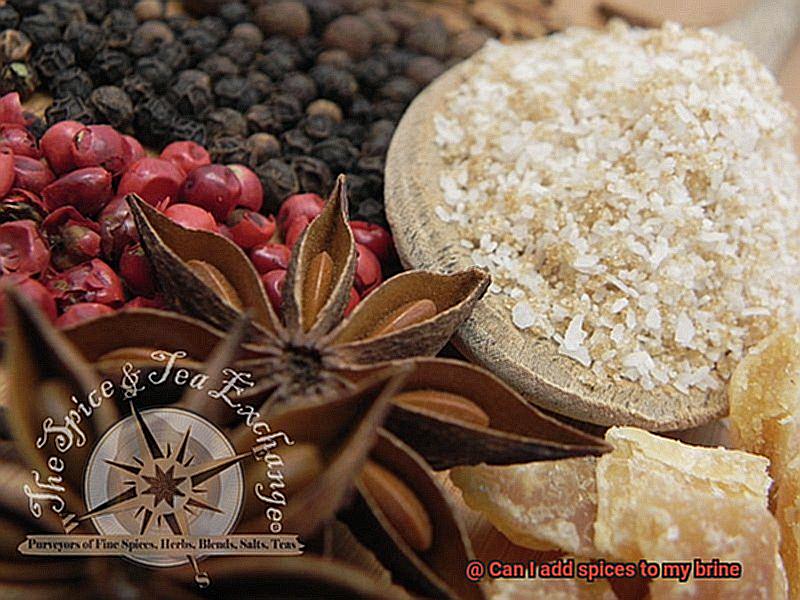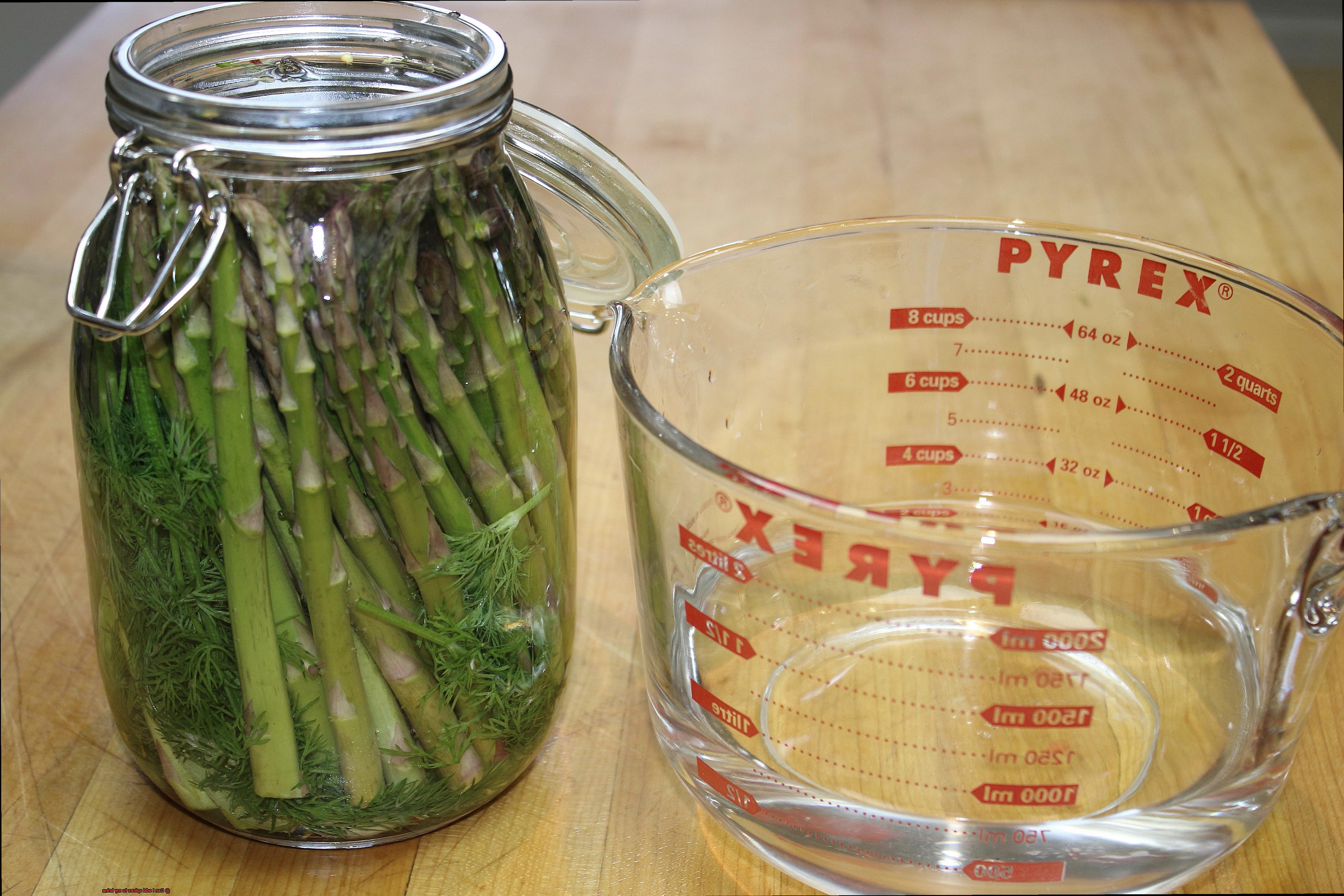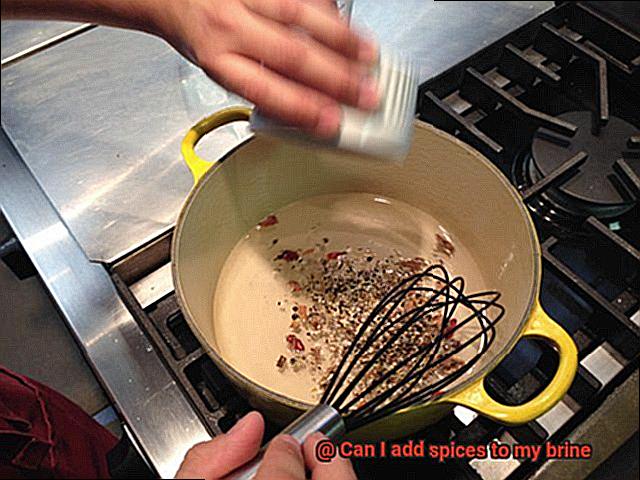Imagine this: You’re getting ready to cook up a delicious piece of meat, and you want to give it some extra flavor. You go to your trusty brine recipe, but you’re feeling like spicing things up a bit. Can you add your favorite spices to your brine? Will it make or break the dish?
The answer is a resounding YES. Adding spices to your brine can take your cooking game from good to great. Brining meat is an excellent way to add tenderness, moisture, and flavor to your dishes, and adding spices into the mix can elevate things even further.
The best part about adding spices into a brine is that you can tailor it exactly how you want it. Are you looking for some heat in your chicken? Try adding cayenne pepper or red pepper flakes. Do you fancy something sweet instead? Add cinnamon or cloves for a delectable twist. The possibilities are endless.
However, keep in mind that some spices can overpower the brine and leave a bitter taste in your meat. It’s best to stick with complementary flavors and avoid going overboard.
In this post, we’re going to explore the ins and outs of adding spices into your brines so that you can achieve mouth-watering results every time. So sit back, grab those spices, and let’s spice things up together.
Contents
What is a Brine?
This popular technique involves soaking food in a solution of salt and liquid before cooking, resulting in a more delicious end product.
But what exactly is a brine? At its core, it’s simply a solution of salt in water (or another liquid) that helps to break down the muscle fibers in the meat. This allows it to absorb more moisture and seasoning, resulting in a juicier and more flavorful dish. Brining can be done with a variety of liquids, such as vinegar, beer, or even fruit juice, depending on your desired taste.
For an extra boost of flavor, you can also add spices to your brine. Garlic, onion, bay leaves, thyme, rosemary, and peppercorns are all popular options. However, it’s important to use the right amount of spice so that it doesn’t overpower the meat. A good rule of thumb is about 1 tablespoon per quart of water.
While brining can improve the taste and texture of your food, it’s important to be careful not to overdo it on the salt. Brine for no more than 24 hours and rinse the meat thoroughly before cooking to remove any excess salt. Additionally, some spices can affect the texture and color of meat, so using neutral spices like garlic or thyme is recommended if you want to avoid any changes.
Benefits of Adding Spices to Your Brine
Spice up your brining game by adding some flavorful spices. Not only will your meat taste better, but it can also provide health benefits too. As an expert in this area, I can tell you that there are many benefits to adding spices to your brine.
Adding spices adds an extra layer of complexity to your dish and elevates the flavor of your meat. Spices like cinnamon, cloves, and allspice can add sweetness, while cumin, coriander, and mustard seeds can add a savory note. Black pepper, garlic, and onion powder are great choices for adding a little bit of heat to your brine. The possibilities are endless.
But it’s not just about taste. Some spices such as turmeric and ginger have anti-inflammatory properties that can help with digestion and overall wellness. And all spices have antimicrobial properties that can help prevent the growth of harmful bacteria in your brine and meat. This is especially important when brining for longer periods of time or when using large cuts of meat.
When adding spices to your brine, it’s important to balance the flavors so that one spice doesn’t overpower the others. It’s also recommended to use whole spices when possible and crush them with a mortar and pestle for maximum flavor extraction.
Popular Spices to Add to Your Brine
Adding spices to your brine is the perfect solution to elevate your dish to a whole new level. As an expert on the subject, I’ve researched and compiled a list of popular spices that will add depth, aroma, and unique flavors to your meat.

First on our list is bay leaves. These leaves have a strong and distinctive flavor that can infuse your brine with an herbal essence. They are commonly used in soups and stews, but adding them to your brine can take your meat to the next level.
Next up is black pepper, the staple spice found in every kitchen. It adds mild heat and a pungent flavor that can complement the natural flavors of your meat. Garlic is another versatile spice that can add depth to your brine with its strong and pungent taste. Whether you use fresh garlic or garlic powder, it can infuse your meat with a delicious aroma and taste.
Rosemary is an herb that has a woody and aromatic flavor, pairing well with poultry, pork, and lamb. Its savory taste can add depth to your brine and make your meat stand out. Thyme is another herb that pairs well with chicken, turkey, pork, and fish. With its slightly minty flavor and hints of lemon and earthiness, it can add a subtle herbal flavor to your brine.
Cumin is a spice that has a warm and earthy flavor commonly used in Mexican and Indian cuisine. Adding it to your brine can give your meat a unique twist and bring out the best in its natural flavors. Finally, there’s paprika, with its sweet and smoky taste. While commonly used in Hungarian cuisine, adding it to your brine can provide a subtle smokiness to your meat.
When experimenting with spices in your brine, it’s important to start with small amounts and adjust according to your personal taste preferences. Not only will adding spices enhance the flavor of your meat, but it also provides health benefits. Turmeric and ginger, for example, have anti-inflammatory properties that can help with digestion and overall wellness while preventing harmful bacteria growth in your brine and meat.
The Right Amount of Spice for Your Brine
Achieving the perfect balance of spices in your brine can make all the difference in taking your meat to the next level. As an expert in the field, I’ve gathered some tips on how to add spices to your brine to achieve maximum flavor without overpowering your meat.
First and foremost, consider the type of meat you’re working with and your personal taste preferences. For a savory chicken brine, try adding garlic powder, onion powder, and thyme. However, if you’re creating a brine for pork, opt for brown sugar, smoked paprika, and cumin for a sweet and smoky taste. Remember, spices vary in intensity, so start small and adjust as needed.
As a general rule of thumb, use about 1-2 tablespoons of spices per gallon of water in your brine. However, if you plan on brining for an extended period of time, be cautious of using too much spice as the flavors can intensify over time.
Timing is also crucial when it comes to spicing up your brine. If you’re only brining for a few hours, use more spices to ensure that the flavor penetrates the meat. But if you’re planning on brining overnight or for an extended period of time, be careful not to use too much spice as it can become overpowering.
In addition to adding spices directly to your brine, consider creating a spice rub to use on your meat after it’s been brined. This allows you to add even more flavor without overwhelming the meat during the brining process.
Potential Effects of Adding Spices to Your Brine
Adding spices to your brine can take your culinary creations to new heights, but it’s important to understand the potential effects of different spices on your final product. As an expert in this field, allow me to guide you through the potential impacts of adding spices to your brine.
Flavor is the first and most obvious benefit of adding spices to your brine. Cinnamon, cloves, bay leaves, and star anise can add warmth and richness to your dish, while ginger, lemongrass, and garlic add a zesty and tangy flavor. Earthy undertones are achieved with black pepper, cumin, and coriander. However, it’s crucial to start with small amounts of spices and adjust as needed to avoid overpowering the meat’s natural flavors.
But the benefits don’t stop there. Spices also contain various health benefits that can enhance your dish’s nutritional value. For example, ginger has anti-inflammatory properties that can soothe an upset stomach, while garlic has antibacterial properties that can help prevent foodborne illnesses. Certain spices even have antioxidant properties that may reduce the risk of chronic diseases.
It’s worth noting that some spices may affect the texture of the meat when added to the brine. Paprika can cause a slight color change in the meat, while acidic spices like lemon juice or vinegar may break down the meat’s proteins, resulting in a softer texture. However, with careful experimentation and moderation, you can achieve a perfectly balanced result.

How to Choose the Right Spices for Your Brine
Brining your meat is a surefire way to make it tender and flavorful, but adding spices to your brine can take it to the next level. However, choosing the right spices can be challenging, as you don’t want to overpower the natural flavors of the meat. To help you out, here are five tips on how to choose the right spices for your brine.
Consider the type of meat
Different meats have different flavor profiles that pair well with specific spices. For example, chicken and turkey work well with herbs like thyme, rosemary, and sage, while pork can handle stronger flavors like garlic, cumin, and smoked paprika. Choosing spices that complement the meat will enhance its natural flavors.

Think about the overall flavor profile
Do you want your brine to be sweet or savory? Spicy or tangy? Consider the overall flavor profile you want to achieve and choose spices that will complement that. For example, if you want a sweet brine, cinnamon and nutmeg are great choices. If you want a spicy brine, try cayenne pepper or red pepper flakes.
Keep it simple
While it may be tempting to add a bunch of different spices to your brine, sometimes less is more. Stick to a few key spices that will enhance the natural flavors of the meat without overpowering it. A simple blend of salt, sugar, and a few herbs can go a long way in elevating your brine.
Don’t forget about salt
Salt is an essential component of any brine as it helps tenderize the meat and enhances its natural flavors. However, be mindful of how much salt you add as too much can ruin the dish. Start with a small amount and adjust as necessary.
Get creative with your spice choices
Don’t be afraid to experiment with different spice combinations to find what works best for you and your taste preferences. Maybe try adding some citrus zest, ginger, or even a splash of soy sauce to your brine for a unique flavor twist. Remember to start with small amounts and adjust as necessary based on your taste preferences.
Experimenting with Different Spice Combinations
Grilling is an art form where the possibilities are endless. As an artist, you have to experiment with different tools and techniques to create something exquisite and flavorful. And one of the simplest ways to elevate your grilled meats is by experimenting with different spice combinations in your brine.
By adding spices to your brine, you can infuse more flavor into the meat, creating a tantalizing taste explosion that will leave your guests impressed. But with so many spices available, it can be overwhelming to decide which ones to use. Here are some tips to help you get started:
Firstly, consider the overall flavor profile you want to achieve. Do you prefer something mild and refreshing or bold and spicy? This will help you narrow down your choices.
Secondly, keep it simple. Resist the temptation to throw in every spice in your pantry. Stick to a few key spices that complement each other well and won’t overpower the other flavors in the brine.
Thirdly, don’t forget about salt. While spices enhance the flavor of your meat, salt is still a crucial component of any brine. Be sure to add enough salt to properly season the meat.
Fourthly, get creative. Don’t be afraid to experiment with different spice combinations. Try using herbs like thyme, rosemary, or sage for a subtle and refreshing flavor or go bold with cumin, coriander, or chili powder.
Fifthly, consider the type of meat. Different meats pair well with different spices. For chicken, try using garlic and onion powder for a mild flavor, while beef or pork can handle stronger spices like cumin or paprika.
When experimenting with different spice combinations, remember that some spices can overpower others. If you’re using strong spices like cumin or chili powder, use them sparingly so that they don’t overpower the other flavors in the brine. On the other hand, milder spices like ginger or thyme can be used in larger quantities without overpowering the other flavors.
ehw-MGtfXW4″ >
Conclusion
In conclusion, spicing up your brine is a game-changer that can transform your cooking. Brining is an excellent technique that can add tenderness, moisture, and flavor to your dishes. Adding spices takes things to the next level and allows you to personalize your meat exactly how you want it.
When incorporating spices into your brine, it’s crucial to consider the type of meat you’re working with and your taste preferences. Start with small amounts of spices and adjust as needed to prevent overpowering the natural flavors of the meat. Timing is also essential when it comes to adding spices to your brine.
Spices are not only delicious but also offer health benefits. Some have anti-inflammatory properties that promote digestion and overall wellness while preventing harmful bacteria growth in both the brine and meat.
Experimenting with different spice combinations is a fantastic way to infuse more flavor into your meat, creating a tantalizing taste explosion that will impress even the most discerning palates. So don’t be afraid to get creative and try new things – the possibilities are endless.






